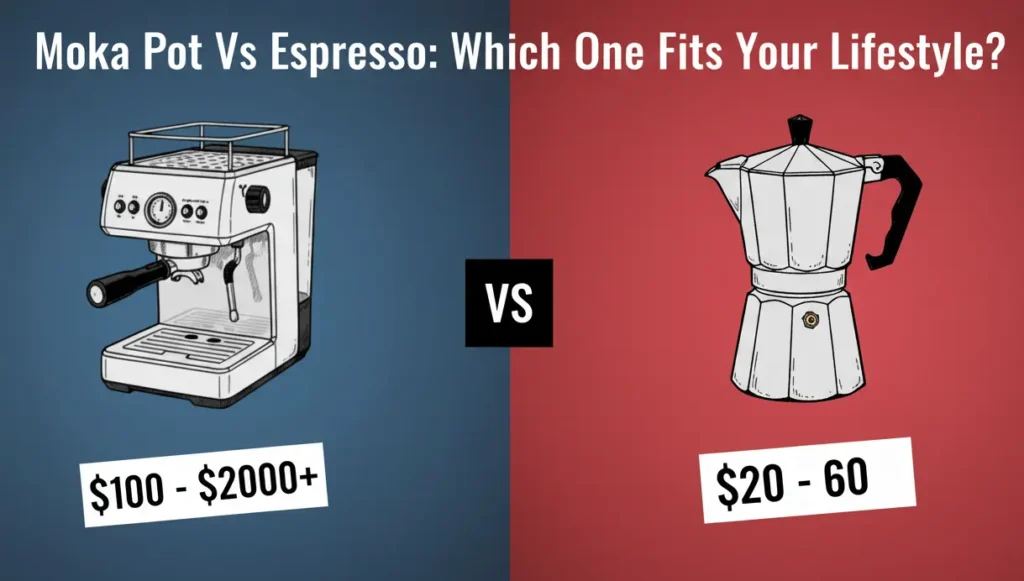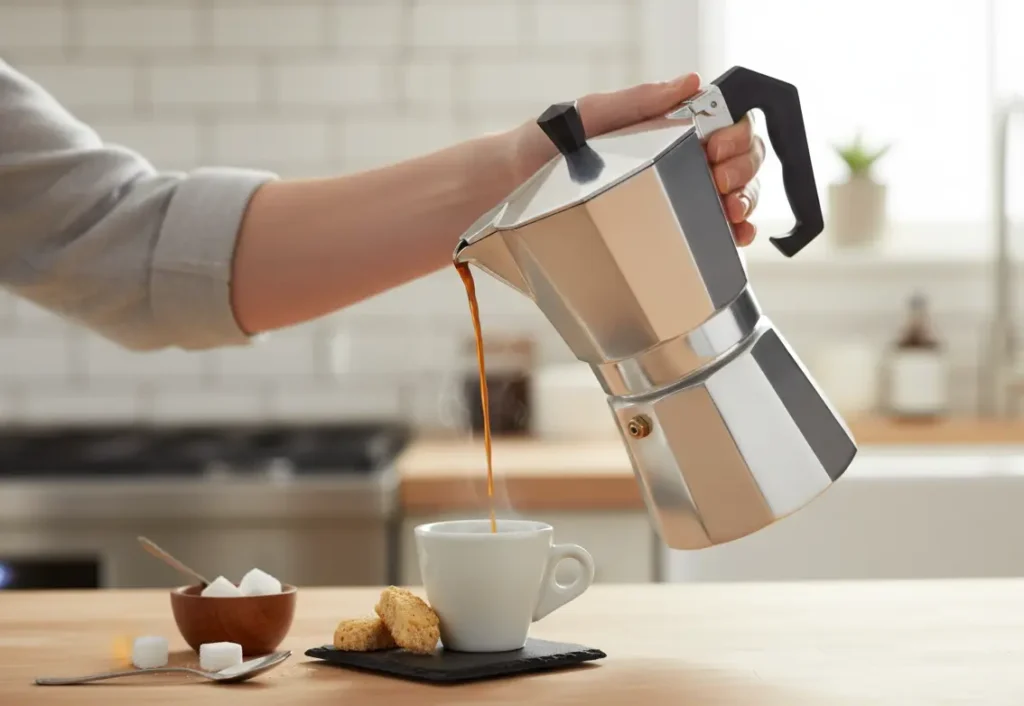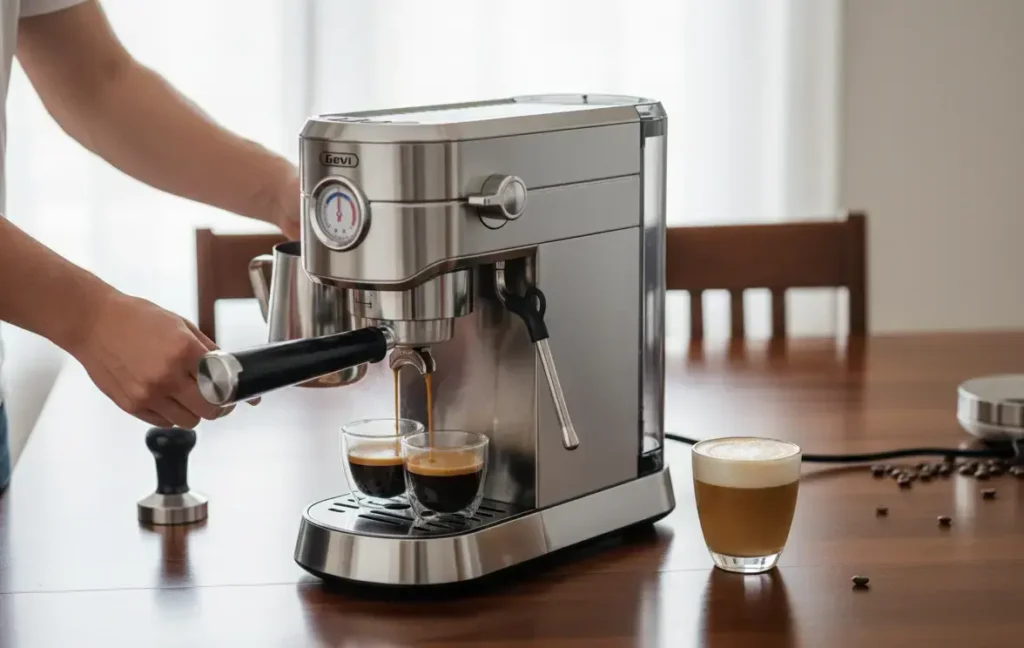You might love the rich, full-bodied taste a French press coffee maker gives you. But have you ever stopped to think about what could be holding you back from enjoying it fully?
While the French press offers a charming, hands-on brewing experience, it also comes with some downsides that could affect your coffee routine. From clean-up hassles to potential health concerns, understanding these drawbacks can help you decide if this method truly fits your lifestyle.
Keep reading to discover the surprising disadvantages of using a French press coffee maker—and whether it’s the right choice for you.
Time Consumption
The French Press takes more time than other coffee makers. Brewing usually lasts about 4 minutes, but preparation and waiting add extra minutes. You must boil water and grind beans before brewing.
After pouring hot water, you wait for the coffee to steep. This longer brewing process means you cannot get coffee instantly. It is less convenient for quick mornings.
Cleaning the French Press can also add to the total time. You must disassemble parts and clean the grounds carefully.

Credit: www.franklygoodcoffee.com
Cleanup Challenges
Residual coffee grounds often remain stuck inside the French press. These tiny bits can make the coffee taste gritty. Cleaning out the grounds can be time-consuming and messy.
Some parts of the French press, like the filter and plunger, have many small pieces. These parts are difficult to clean properly by hand. Sometimes, leftover coffee oils stay on the glass or metal parts. These oils may cause bad smells or affect the taste of future brews.
Careful cleaning is needed to keep the French press working well and tasting good. Using a brush or soaking parts in warm water helps. But the cleanup process is still more troublesome than with other coffee makers.
Sediment In Coffee
Coffee grounds often end up in the cup when using a French Press. This happens because the metal mesh filter cannot catch all tiny particles. As a result, the coffee has a gritty texture that many find unpleasant.
This sediment can change the taste of the coffee. It may feel bitter or muddy. Some people like it, but others prefer a cleaner cup. The presence of grounds can also make the coffee harder to drink smoothly.
To reduce this, using a coarser grind helps. Letting the coffee settle before drinking also works. Still, some sediment is almost always there with a French Press.
Heat Retention Issues
A French Press coffee maker often has heat retention issues. The coffee inside cools down quickly because the glass or metal container lacks proper insulation. This means your coffee might get cold before you finish drinking it.
The design does not keep the temperature well. Heat escapes through the walls easily. This makes the coffee lose its freshness and flavor faster than other coffee makers.
Some users try to keep their coffee warm by pouring it into a thermos. But this extra step can be inconvenient. A French Press is best for those who drink coffee right away.
Flavor Limitations
The French Press can cause over-extraction if coffee grounds steep too long. This leads to a bitter taste and unpleasant flavors. It happens because the water stays in contact with the grounds for a long time.
Controlling the brew strength is not easy. You cannot adjust it precisely like other coffee makers. The result may be too strong or too weak coffee. This limited control can be frustrating for some users.
Health Considerations
A French press coffee contains higher diterpene levels. These compounds, like cafestol, can raise LDL cholesterol, the “bad” cholesterol. This may impact heart health negatively if consumed often.
Unlike filtered coffee, a French press does not use a paper filter. Paper filters trap diterpenes, reducing their amount in coffee. Without this filter, more diterpenes stay in the brew.
People with cholesterol problems should be cautious. Drinking French press coffee in large amounts might increase cholesterol levels over time. Moderation is important to avoid health risks.
Durability And Material Concerns
The glass body of many French press coffee makers can break easily if dropped or knocked. This makes them less durable compared to metal or plastic models. Careful handling is needed to avoid costly replacements.
The metal mesh filter inside the French press can wear out over time. It may become loose or bent, causing more coffee grounds to slip into your cup. Replacing the filter is necessary to keep coffee smooth and clean.

Credit: discover.hubpages.com
Portability Limits
The French Press coffee maker has a bulky design. It takes up more space than other coffee makers. This makes it hard to carry on trips or vacations. Its weight and shape do not fit well in backpacks or small bags.
The glass carafe is also fragile and may break easily during travel. You must pack it carefully to avoid damage. This design makes it less ideal for travel or outdoor use.
Compared to compact coffee makers, the French Press is not as portable. People who travel often prefer lighter and smaller coffee makers. The French Press is best used at home or in places where space is not a problem.

Credit: handground.com
Frequently Asked Questions
What Are The Negatives Of French Press?
French press coffee can have sediment in the cup, requires more cleanup, and brewing takes longer than drip methods. It may produce a stronger, sometimes bitter taste.
What Is The Healthiest Method Of Coffee Making?
The healthiest coffee method uses a paper filter to remove harmful compounds. Pour-over brewing preserves antioxidants. Use hot water below boiling and grind beans fresh. Drink black or add unsweetened plant milk for best health benefits.
Is Coffee From A French Press Better?
Coffee from a French press offers rich flavor and fuller body due to direct contact with grounds. It lacks paper filters, so oils remain, enhancing taste but increasing sediment and cholesterol compounds. Brewing takes longer and cleanup can be harder.
Many prefer it for its robust, aromatic profile.
Can I Put Regular Ground Coffee In A French Press?
You can use regular ground coffee in a French press, but coarse grounds work best. Fine grounds may clog the filter and cause sediment in your cup. Coarse grind ensures smooth extraction and easier cleanup.
What Are Common Drawbacks Of Using A French Press?
French presses can be slow, messy, and sometimes let coffee grounds slip into the drink.
Conclusion
A French press coffee maker has some clear downsides to consider. It can take more time to brew compared to other methods. Cleaning the device is often seen as a hassle. Sometimes, coffee grounds slip into the cup, affecting taste.
It also lacks a paper filter, which can impact health aspects. These factors may not suit everyone’s routine or preferences. Choosing the right coffee maker depends on your needs and habits. Understanding these disadvantages helps make a better choice.

Hi, I’m Joshua Miller, a U.S.-based food lover, review writer, and Co-founder of KitchenWink.com. I hold a Bachelor of Science in Food Science and Culinary Technology, and for over five years I’ve been testing kitchen gadgets like air fryers, blenders, and other cooking tools.
I’m also a home cook, so every product I review is tried in real kitchens—not just in theory. My reviews are based on real results, simple fixes, and tips that anyone can use. With both formal training and hands-on testing, I make sure my advice is clear, honest, and practical.
My goal is simple: to help home cooks choose the right tools and make cooking easier every day.




